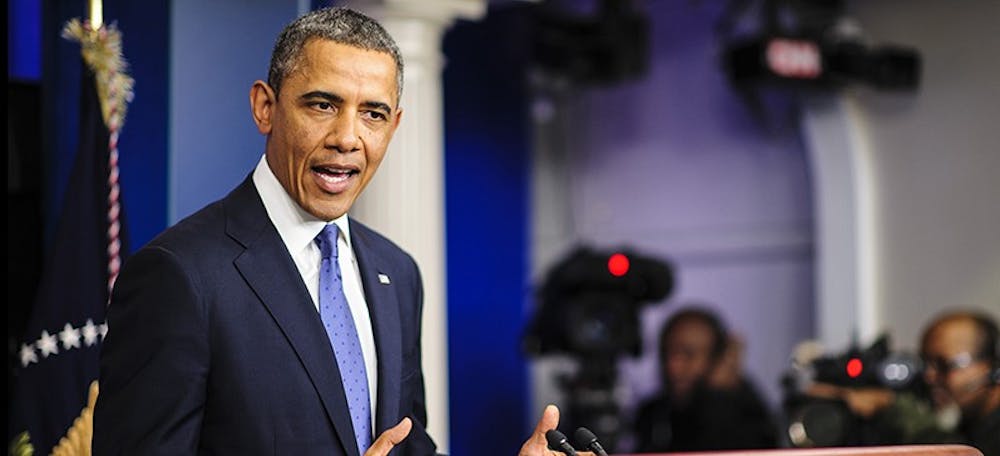On Dec. 30, 2012, at a concert venue in Atlantic City, N.J., Kanye West made an announcement. He said, “Stop the music for a second. Can we make some noise for my baby mama?”
Meanwhile, the United States economy was scheduled to fall off a cliff.
“Fiscal cliff” is a term coined by Ben Bernanke, the chairman of the Federal Reserve, that describes a combination of tax increases and spending cuts that were to come into effect at midnight on Dec. 31.
Instead, the debt ceiling was raised once again, preventing the automatic budgetary revisions from taking effect.
Essentially, the fiscal cliff is an economic concern that arose because our representatives can’t agree on how to manage the budget. They averted the cliff that economists predicted would send us back into a recession, but they only delayed the real problem.
So how did we get into this mess in the first place? In 2001, President George W. Bush and Republicans in Congress could not get the 60 Senate votes needed to pass Bush’s initial 10-year, $1.7 trillion tax cut, so they used a tool called reconciliation that allowed them to pass the tax cuts with a simple Senate majority of 51 votes. The snag in this plan was that these tax cuts were to expire after 10 years; he was simply prolonging our economic woes. President Barack Obama further evaded the issue by striking a deal with the Republicans in 2010 to extend the tax cuts for another two years. On Dec. 31, 2012, these extensions expired.
According to a Washington Post article published Jan. 15, the federal government will reach the legal limit on its ability to borrow sometime in the next 30 to 60 days. The current debt is $16.4 trillion, a number technically above the statutory limit. Republicans in Congress are refusing to further raise the debt ceiling while Obama is not budging when it comes to spending cuts.
But why all this talk about the economy? Elon students have bigger issues than being pushed off some metaphorical cliff, don’t we? Well, not necessarily. The fiscal cliff is an issue that has the potential to significantly affect college students.
In an interview published earlier this month, David Brooks, an op-ed columnist for the New York Times, made the following comment:
[quote]“My big puzzle is why young people are not in the streets. They are really being hosed, sentenced to a living standard much lower than their parents because of [baby] boomer greed. I guess it’s hard when you are 25 to imagine the tax bill and the benefit cuts that will hit when you are 40, but someday interest rates will return to their normal levels and it will all come crashing down.”[/quote]
Despite the adverse effects that will surely impact college students not so far down the road, students continue to show apathy toward this issue.
Our question for the Elon student body is why aren’t we taking the fiscal cliff deal seriously? Why do we, as students, with so much invested in our futures, fail to take notice of something that will undoubtedly impact our financial stability? It seems that there is a tendency to get wrapped up in Elon-centric issues, but at a certain point, we need to open our eyes to the things going on around us or we will be in for a rude awakening. Is the Elon bubble just too cushy a safety net? That remains unclear, but what is plainly clear is our treasury is running out of money and our government is running out of time. Whether or not we choose to acknowledge it, our generation is going to be the one to pay the price.


